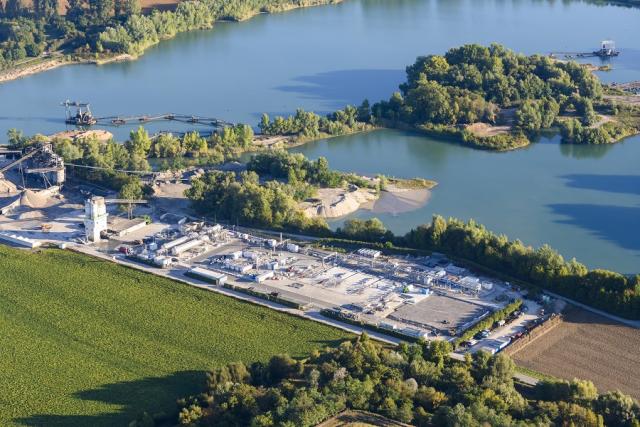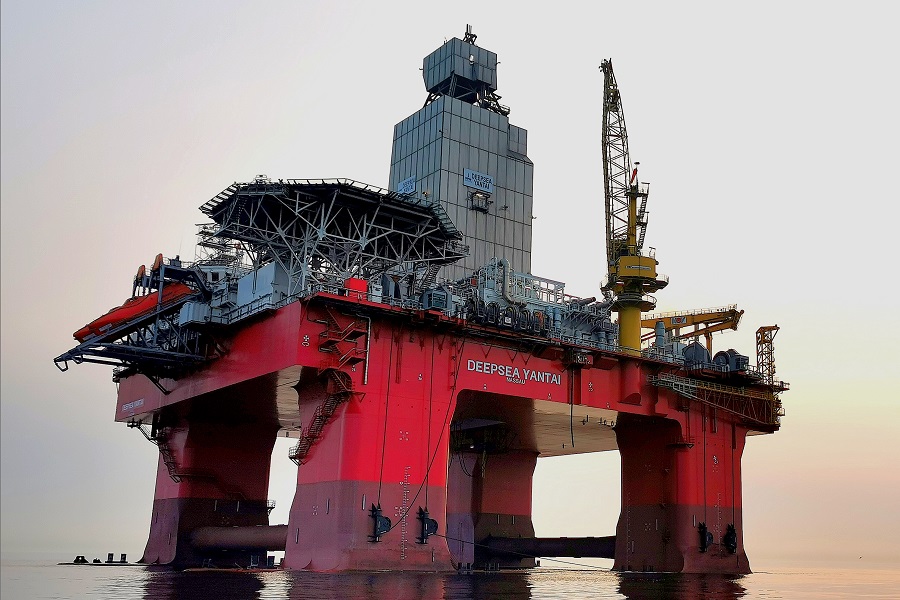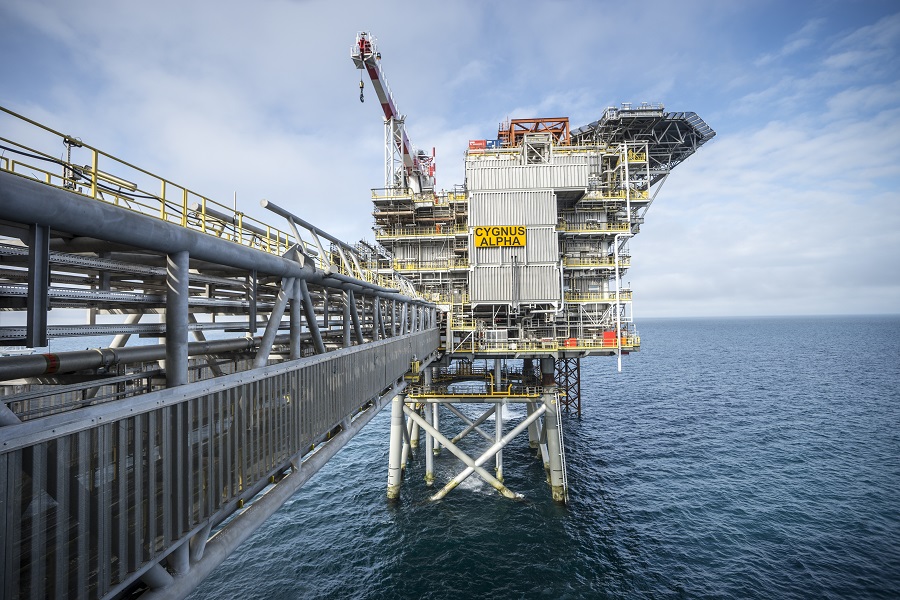
Römerberg is the largest oil field that Neptune operates in the Rhine Valley. (Source: Neptune)
Neptune Energy, producer of an average of 135,000 boe/d, is selling all but its German operations to Eni International BV and Vår Energi ASA, which is 63% owned by Eni, for an aggregate total of $4.9 billion, the three companies announced June 23.
As per the deal, Neptune is retaining only its German operations and selling its Norwegian assets for approximately $2.3 billion to Vår. Eni is scooping up Neptune’s remaining operations in the U.K., the Netherlands, North Africa and Asia-Pacific for approximately $2.6 billion.
Completion of the acquisitions is conditional upon the receipt of necessary regulatory and governmental clearances, among other things. The transactions are expected to close by the end of the first quarter of 2024. The Vår transaction will close immediately prior to the Eni transaction, and the proceeds from the Norway sale will remain with the Neptune Global Business that Eni is purchasing.
The German operations contribute 17,500 boe/d, or 13%, of Neptune’s production. The Neptune-operated Römerberg oil field and the Adorf gas field are both under development there. Neptune, founded in 2015, is owned by China Investment Corp., funds advised by Carlyle Group and CVC Capital Partners and certain management owners.
“This transaction offers a new and exciting phase for Neptune, with significant growth opportunities supporting energy security and the energy transition, which will benefit from Eni’s and Vår Energi’s larger scale and available resources,” Neptune Executive Chairman Sam Laidlaw said in a press release.
Vår’s Norwegian deal
Vår is buying 100% of the shares of Neptune Energy Norge AS for a cash consideration based on an agreed enterprise value of $2.275 billion, with an effective date of Jan. 1, 2024. Vår said in a press release the purchase was intended to accelerate its growth as an E&P independent on the NCS. Vår is financing the transaction through available liquidity and credit facilities.
Neptune’s Norwegian operations produce 58,300 boe/d, or 43% of Neptune’s production, and include operating or participating interests in fields like Gjøa, Gudrun, Snøhvit and Dugong, which was one of the largest discoveries on the Norwegian Continental Shelf (NCS) in 2020, as well as interests in the Njord and Fram areas.
In the first quarter of 2023, Neptune Norway produced 62% gas and LNG, 27% oil and 11% NGLs. Approximately 42% of the production came from operated fields. The 2P reserves as of end 2022 were 68% gas, 17% oil, 11% NGL and 4% condensate. Neptune Norway has participated in seven discoveries since 2019, including Echino South and Blasto, in which Vår Energi is a partner, and three operated discoveries in Dugong, Hamlet and Ofelia.

Vår said the deal adds scale, diversification and longevity to the company’s portfolio, with the new assets complementing Vår’s existing portfolio. Vår’s rationale behind the deal included gaining interest in the Equinor-operated Snøhvit gas field and the associated Melkøya LNG plant, bolstering the company’s position in the Barents Sea. In total, Vår is gaining ownership in 12 producing assets, along with a pipeline of early-phase projects that include Dugong, Blasto and Echino South, as well as infrastructure-led exploration opportunities around existing hubs.
Vår CEO Torger Rød said in a press release that the transaction will “underpin our plan to increase production by more than 50% by end-2025, while significantly reducing unit production cost.”
He said the acquisition would strengthen the company’s position in core areas, support continuous asset optimization and increase operatorships while providing attractive early phase projects and exploration opportunities.
“The acquisition will expand our hub strategy to new areas and key growth assets, including operatorship of Fenja, Duva and Gjøa, with significant potential for infill and infrastructure-led activity. We will become a partner in the significant Snøhvit gas field and the Melkøya LNG plant, the only gas export infrastructure in the Barents Sea,” Rød said.
Eni snags the rest
Eni said the transaction will be funded through available liquidity. The purchase complements Eni’s key geographic focus areas and supports the company’s aim to increase its share of natural gas production to 60% and reach Scope 1 and Scope 2 net zero emissions from its upstream business by 2030.
“Eni sees gas as a critical bridge energy source in the global energy transition and is focused on increasing the share of its natural gas production to 60% by 2030. Neptune will contribute predominantly gas resources to Eni’s portfolio,” Eni CEO Claudio Descalzi said in a press release.
The deal provides gas production and carbon capture, utilization and sequestration opportunities with the remaining North Sea footprint in the U.K. and the Netherlands, Descalzi said. The new assets will build on Eni’s Algeria holdings and deepen the company’s offshore Indonesia presence, he said.
In the U.K., Neptune produced 15,000 boe/d in 2022, mostly from its operated Cygnus Field, which is the U.K.’s largest single gas producer. Neptune is also developing its operated Seagull Field, which is due onstream later this year.

In the Netherlands, where Eni does not currently have operations, Neptune produced 18,000 boe/d in 2022, much of which was gas. Neptune, the largest producer in the Dutch North Sea, operates several offshore hubs that provide opportunity to add new reserves and production through infill drilling and tiebacks.
In Algeria, Neptune operates the Touat Field, where production is suspended due to upgrades to processing facilities. Neptune production from the Western Desert in Egypt in 2022 was 3,000 boe/d in 2022, while Eni produced 95,000 boe/d in Algeria and 346,000 boe/d in Egypt.
In Indonesia, Neptune produced over 20,000 boe/d from the Eni-operated Jangkrik and Merakes Fields, which supply gas to the Bontang LNG facility and domestic customers. Eni production in Indonesia in 2022 was 62,000 boe/d.
In Australia, Neptune has an interest in the Petrel project in the Bonaparte Basin, offshore Australia. Though development options for Petrel are currently being assessed, there could be optionality to leverage existing infrastructure, including Eni’s 100%-held Blacktip Field, which produces and processes gas offshore for delivery to shore.
Recommended Reading
Queen’s Chess: Changing the Rules
2025-02-28 - There’s a popular response to the inexplicable: “I don’t know. I don’t make the rules.” But what is known with certainty, as shown throughout history, is that we can change them.
Comments
Add new comment
This conversation is moderated according to Hart Energy community rules. Please read the rules before joining the discussion. If you’re experiencing any technical problems, please contact our customer care team.


